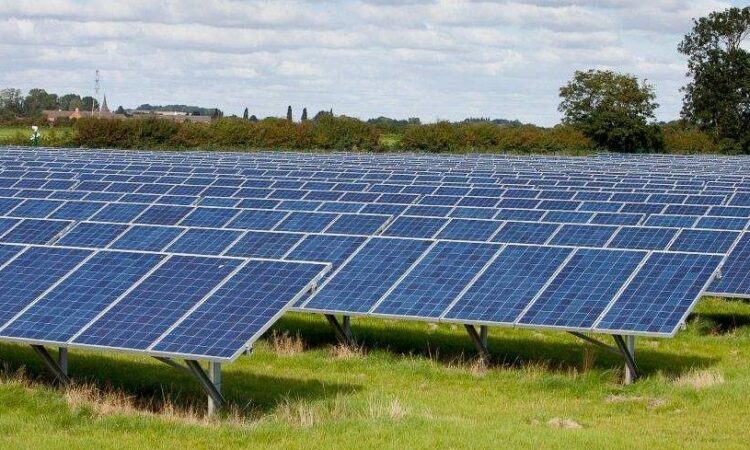
Although it’s difficult to determine the exact positive and negative effects of solar energy on the environment, it can be said that the use of solar energy reduces the demand for fossil fuels, pollution, and the burning of fuels. Solar energy also reduces the amount of water used in the manufacturing process.
Environmental Impact of Solar Energy is Difficult to Determine
The environmental impact of solar energy is not entirely clear. Since emissions from solar panels vary depending on the technology used, it is difficult to make generalizations. However, solar panels produce less carbon dioxide than other energy sources. For example, photovoltaic panels emit about 0.07 grams of carbon dioxide equivalent per kilowatt-hour, while concentrating solar power produces emissions ranging from 0.08 to 0.2 grams of carbon dioxide equivalent per kilowatt-hour.
Traditional large-scale solar installations use leveled land and remove vegetation and topsoil. Low-impact solar development, on the other hand, keeps topsoil intact and includes native vegetation. These species are often friendly to pollinators and have deep roots that help retain moisture. This improves soil health over time.
Moreover, there are some other challenges related to solar energy. While the sun remains a renewable resource, it has a finite lifespan and produces large quantities of waste. The International Renewable Energy Agency (IRENA) has estimated that by the 2030s, solar energy-based panels would produce 78 million tonnes of waste. This is a staggering amount, but it represents a billion-dollar market. However, IRENA’s predictions assume that solar panels will remain in place for the entire thirty-year lifecycle, which ignores the growing trend of premature replacement.
Despite all the positives of solar energy, the environmental impact of solar energy is still not fully known. Some researchers claim that solar farms destroy natural habitats and endanger a wide range of native species. In Hawaii, for example, an 18×3 acre parcel is proposed to be cut down to create room for a photovoltaic farm. Moreover, Ward Lambert, a former photovoltaic advocate, expressed his opposition to the land purchase and the barbed-wire fence around the panels.
It Reduces the Impact of Combustion
The use of solar energy reduces the pollution caused by combustion, thus helping the environment. Fossil fuels emit harmful gases into the atmosphere and increase global temperatures, contributing to climate change and other serious environmental and public health problems. Solar energy also reduces the demand for fossil fuels and creates jobs in communities where it is used. In the long run, this helps slow the impacts of climate change.
Solar energy is particularly effective at reducing the carbon footprint. One study showed that just one megawatt-hour of solar energy can offset up to one ton of carbon dioxide. This is an incredible amount of energy and helps reduce our carbon footprint.
Solar energy reduces the emissions of conventional air pollutants, including sulfur dioxide and nitrogen oxides. The amount of pollution depends on the efficiency of the manufacturing process and the degree of pollution control at the manufacturing site. Another factor is land. The land is in limited supply in many parts of the United States and China. This makes the physical footprint of a new solar energy facility an important consideration.
Valley Food Storage Coupon Code offers a wide variety of coupons and discounts on survival food kits & electronic items at an affordable price. Some solar power plants need water for cooling turbine generators. This can be harmful to local ecosystems, especially in arid areas. In addition, concentrated sunlight from solar power towers can kill insects and birds.
It Reduces the Impact of Pollution
Solar energy is environmentally friendly and could play a significant role in reducing the effects of pollution. It uses less water than conventional electricity sources and produces less air pollution. It also doesn’t generate toxic runoff, unlike fossil fuels. Solar power also dramatically reduces carbon emissions, which are responsible for 31 percent of global warming emissions.
Solar energy is not entirely free from pollution, however. Some pollution sources, such as agriculture, can reduce the production of solar energy. For example, the atmospheric particles known as particulate matter (PM) are known to reduce the intensity of incoming solar radiation. Although these pollution factors aren’t responsible for a significant reduction in solar energy, they do affect solar energy production.
India has a goal of generating 100 gigawatts of solar power by 2022, but its prospects have been dampened by high levels of air pollution. Atmospheric pollution reduces solar power production in two ways: by scattering and absorbing sunlight. Furthermore, atmospheric pollution can damage solar panels. It reduces their efficiency by about five percent.
Solar energy reduces the effect of pollution by reducing the amount of carbon dioxide released into the atmosphere by approximately 16.8 million tons each year. As a result, it also helps to reduce the impact of global warming and the use of fossil fuels. This green energy source also provides a significant amount of free electricity, which reduces the demand for polluting power plants.
It is a Sustainable Alternative to Fossil Fuels
Solar energy is a renewable energy that uses the sun’s energy to power your devices. This energy is not only clean and renewable, but it’s also much less harmful to the environment. The downside to using nonrenewable energy sources is that they can be harmful to the environment and human health. For example, oil drilling can destroy large areas of boreal forests, while fracking can lead to water pollution and earthquakes. Solar energy also uses the sun’s rays to power a wide variety of modern devices.
Despite these downsides, solar energy is becoming a popular alternative to fossil fuels, thanks to its low environmental impact. While many industry leaders consider solar energy to be a sustainable source of energy, there are still some skeptical people. While solar panels are not as damaging to the environment as fossil fuels, the production process does create a significant environmental impact.
The biggest concern in combating climate change is energy security and sustainability. Although an all-green renewable energy system is desirable, the current energy structure and financial situation make it difficult to implement. Therefore, it is necessary to develop a low-carbon alternative to fossil fuels to meet the growing energy demand. One option that is both affordable and efficient is natural gas. Because it is cleaner than coal, natural gas can help the transition to a low-carbon energy system. If you’re looking for high-quality solar panels at a reasonable price, use the Electronics Promo Codes.
It has Benefits for People in Remote Areas
Off-grid solar energy systems can provide electricity to remote areas and can have a significant economic benefit for those living in rural communities. These communities are often isolated, with no access to markets, financial institutions, or electricity. It’s estimated that more than 1.2 billion people around the world are without basic electricity, with the majority living in developing countries. Unfortunately, extending the electric grid to these areas is incredibly costly, and the terrain is often inhospitable.
If you’re looking for the best high efficiency solar panels on a budget, consider the 4wd Supacentre Promo Code. The reliable supply of electricity in these remote communities is vital for many reasons. It allows businesses to remain open late, clinics to operate more efficiently, and households to run household appliances. Furthermore, reliable electricity means that no child should go without vaccines, and no woman should give birth by candlelight. Lack of power has deprived many rural communities of quality healthcare. By providing reliable electricity, renewable energy systems can help ensure quality health care for the world’s most disadvantaged people
Conclusion
Off-grid solar energy is an efficient and affordable alternative to traditional grid electricity. Because the costs of centralized electric power generation are often prohibitively high, solar mini-grids are a viable alternative. In addition to helping rural communities meet their energy needs, solar power can generate additional income opportunities. In Tanzania, for example, vendors have been able to make a profit selling solar-powered products.








